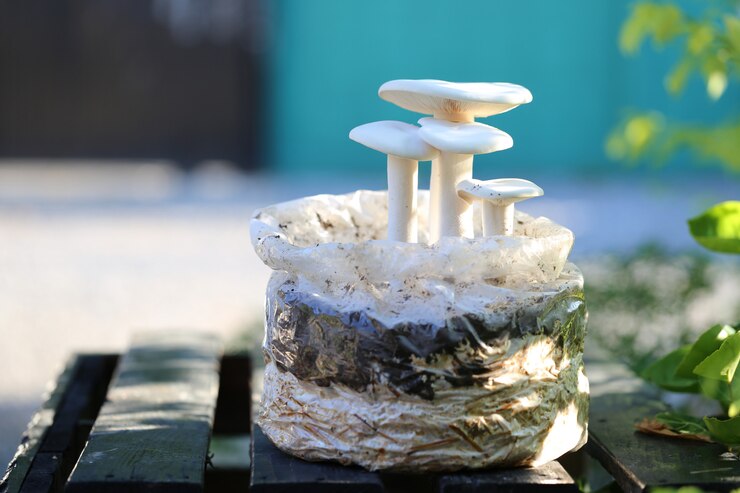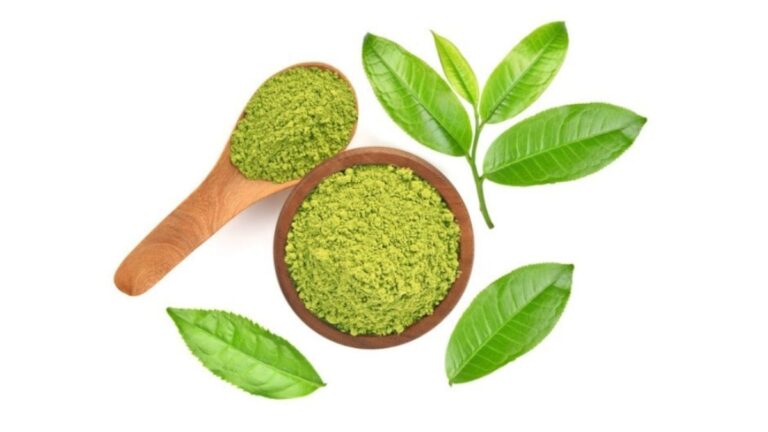From Ancient Rituals to Modern Medicine: The Rising Trend of Purchasing Magic Mushrooms
Unlocking the secrets of ancient rituals and embracing the wonders of modern medicine, there is a rising trend that has captured the attention of curious minds and adventurous souls alike: purchasing magic mushrooms. These mystical fungi have been revered for centuries, their reputation for inducing altered states of consciousness and spiritual experiences drawing individuals from all walks of life. From shamans in remote tribes to cutting-edge researchers in laboratories, people are exploring the fascinating world of psilocybin mushrooms with newfound enthusiasm. In this blog post, we will delve into the rich history, composition, effects, dosage guidelines, as well as potential medical uses and legal considerations surrounding these magical marvels. So fasten your seatbelts and join us on this captivating journey from ancient rituals to modern medicine!
The History and Occurrence of Psilocybin Mushrooms
Psilocybin mushrooms, often referred to as magic mushrooms, have a long and storied history that dates back thousands of years. These mystical fungi have been used in various cultures around the world for spiritual and medicinal purposes. From ancient civilizations in Mesoamerica to indigenous tribes in Africa, the reverence for these sacred mushrooms runs deep.
The earliest evidence of psilocybin mushroom usage can be traced back to prehistoric rock art found in Algeria, dating back over 7,000 years. Depictions of mushroom-headed humans suggest a connection between these fungi and religious or shamanic practices.
In Central America, the Aztecs considered psilocybin mushrooms to be divine gifts from the gods. They were reserved for use by priests during religious ceremonies and rituals. The Mazatec people of Mexico also had a long tradition of using psilocybin mushrooms as part of their healing practices.
Psilocybin-containing mushrooms are not limited to specific regions but are rather distributed globally. They can be found growing naturally in various habitats such as grasslands, forests, and even decaying organic matter like compost piles or fallen logs.
However, despite their widespread occurrence across different continents, many varieties remain undiscovered or unknown due to limited research conducted on these fascinating organisms. As interest grows and more scientific investigations take place, we may uncover even more about the history and diversity of psilocybin-containing mushrooms around the world.
The Composition and Effects of Psilocybin Mushrooms
Psilocybin mushrooms, also known as “magic mushrooms,” have been capturing the attention of curious minds for centuries. These fascinating fungi contain a powerful psychedelic compound called psilocybin, which is responsible for their mind-altering effects. But what exactly makes up these mystical mushrooms and how do they affect our consciousness?
The composition of psilocybin mushrooms can vary depending on the species, but they typically contain two main compounds: psilocybin and psilocin. Psilocybin is a prodrug that gets converted into psilocin when ingested. Both compounds belong to the family of tryptamines and interact with serotonin receptors in the brain.
Once consumed, magic mushrooms can induce a range of effects on perception, cognition, and mood. The experience often includes hallucinations, sensory distortions, altered sense of time and space, profound introspection, feelings of euphoria or anxiety, and enhanced creativity. These effects are thought to be primarily caused by the activation of serotonin receptors in various regions of the brain.
The intensity and duration of these effects depend on several factors including dosage, individual sensitivity, set (mindset), setting (environment), and preparation method. Smaller doses may result in subtle changes in perception and mood enhancement while higher doses can lead to more intense visionary experiences.
It’s important to note that although many people report positive or transformative experiences with magic mushrooms under controlled conditions or therapeutic settings; it’s not without risks. Like any psychoactive substance , there are potential risks associated with misuse such as psychological distress , anxiety attacks , flashbacks etc
Exploring the Dosage and Toxicology of Psilocybin Mushrooms
When it comes to exploring the dosage and toxicology of psilocybin mushrooms, there are a few key factors to consider. The potency of these mushrooms can vary greatly depending on the species and growing conditions. This means that dosages must be carefully measured to ensure a safe and enjoyable experience.
In terms of dosing, it is important to start low and go slow. The effects of psilocybin can be unpredictable, so it’s best to err on the side of caution when trying them for the first time. A typical starting dose is around 1-2 grams of dried mushrooms, but individual sensitivity may vary.
It’s also worth noting that tolerance can develop quickly with regular use. To achieve the same level of effects, one would need to increase the dosage significantly. It’s advisable to wait at least a week between trips to avoid diminishing returns.
When it comes to toxicology, psilocybin mushrooms are generally considered safe when used responsibly in moderate doses. However, like any substance, there are potential risks if abused or used in high quantities. These risks include nausea, anxiety, panic attacks, and psychosis-like symptoms.
Furthermore, individuals with pre-existing mental health conditions should exercise caution when using psilocybin mushrooms as they can potentially exacerbate underlying issues. It is always recommended to consult with a healthcare professional before experimenting with psychedelic substances.
By understanding proper dosing guidelines and being aware of potential risks associated with psilocybin mushroom use , individuals can safely explore their transformative properties while minimizing any adverse effects
The Legality and Availability of Psilocybin Mushrooms
Psilocybin mushrooms, also known as magic mushrooms, have been a subject of legal scrutiny around the world. The legal status of these fungi varies greatly from country to country, making it important for potential consumers to understand the laws in their jurisdiction.
In some places, such as Brazil and Jamaica, psilocybin mushrooms are actually legal or decriminalized. This means that individuals can possess and consume them without fear of prosecution. However, it’s worth noting that even in these countries there may still be restrictions on cultivation or sale.
On the other hand, many countries consider psilocybin mushrooms illegal substances. In the United States, for example, they are classified as Schedule I drugs alongside heroin and LSD. Possession or distribution can carry severe penalties including fines and imprisonment.
Despite their legal status in many areas, psilocybin mushrooms have become increasingly available through alternative channels. With advancements in technology and online marketplaces expanding globally, individuals interested in purchasing magic mushrooms now have more options than ever before.
However, it is essential to approach buying magic mushrooms with caution due to safety concerns associated with obtaining substances from unknown sources. There is always a risk of receiving mislabeled products or items contaminated with harmful substances.
As attitudes towards psychedelic substances continue to evolve worldwide, discussions surrounding the legality and availability of psilocybin mushrooms will undoubtedly persist. It remains crucial for researchers and policymakers alike to assess the potential risks and benefits while considering public health implications before determining appropriate regulations governing these fascinating fungi.
The Influence of Ancient Rituals on the Modern Trend
Ancient rituals have a profound influence on our modern lives, shaping our beliefs and practices in ways we may not even realize. When it comes to the rising trend of purchasing magic mushrooms, these ancient rituals play a significant role.
Throughout history, different cultures around the world have revered psilocybin mushrooms for their mystical properties. From indigenous tribes in South America to ancient civilizations in Europe and Asia, these mushrooms were often used as part of sacred ceremonies and spiritual experiences.
The connection between humans and magic mushrooms dates back thousands of years. In many cases, these hallucinogenic fungi were believed to provide access to higher realms of consciousness and serve as tools for healing, divination, and introspection.
Today, as more people seek alternative approaches to wellness and self-exploration, there is a resurgence in interest surrounding the ritualistic use of magic mushrooms. People are drawn to the deep-rooted wisdom embedded within these ancient practices.
In addition to traditional rituals involving psilocybin mushrooms, modern research has also been heavily influenced by ancient knowledge. Scientists are now exploring how these substances can be harnessed for therapeutic purposes such as treating mental health disorders like depression or anxiety.
By acknowledging the influence of ancient rituals on this modern trend of purchasing magic mushrooms, we gain a deeper appreciation for both their historical significance and potential future applications. The blending of old traditions with new scientific advancements creates an exciting landscape where age-old wisdom meets cutting-edge research – all revolving around the power contained within these remarkable fungi.
Harnessing the Power of Psilocybin: From Nature to Science
The rising trend of purchasing magic mushrooms can be attributed to a combination of ancient rituals and modern scientific research. Throughout history, psilocybin mushrooms have been used in spiritual and healing practices by various cultures around the world. These ancient traditions have laid the foundation for exploring the potential medical uses of psilocybin.
In recent years, clinical studies have shown promising results in using psilocybin-assisted therapy for treating mental health conditions such as depression, anxiety, and PTSD. The psychedelic properties of these mushrooms allow individuals to access deep parts of their subconscious mind and gain new perspectives on their lives.
Researchers believe that psilocybin works by activating serotonin receptors in the brain, leading to neuroplasticity and enhanced connectivity between different regions. This increased connectivity may explain why individuals experience profound insights and lasting positive changes after a psychedelic experience.
As more research is conducted on the therapeutic benefits of psilocybin, there is growing interest from both medical professionals and the general public. However, it’s important to note that self-medication with magic mushrooms without proper guidance can pose risks and should be approached with caution.
The legality surrounding psilocybin mushrooms varies greatly depending on location. Some countries classify them as illegal substances while others allow for limited medical or religious use. It’s crucial for individuals interested in exploring this natural medicine to familiarize themselves with local laws before making any purchases.
With increased awareness about the potential benefits of psilocybin mushrooms, more companies are emerging that offer safe and regulated products for purchase. Online platforms provide a convenient way for individuals seeking these substances to find reliable sources while prioritizing quality control measures.
The History and Occurrence of Psilocybin Mushrooms
Psilocybin mushrooms, often referred to as magic mushrooms, have a long and storied history that dates back thousands of years. These mystical fungi have been used in various cultures around the world for spiritual and medicinal purposes. From ancient civilizations in Mesoamerica to indigenous tribes in Africa, the reverence for these sacred mushrooms runs deep.
The earliest evidence of psilocybin mushroom usage can be traced back to prehistoric rock art found in Algeria, dating back over 7,000 years. Depictions of mushroom-headed humans suggest a connection between these fungi and religious or shamanic practices.
In Central America, the Aztecs considered psilocybin mushrooms to be divine gifts from the gods. They were reserved for use by priests during religious ceremonies and rituals. The Mazatec people of Mexico also had a long tradition of using psilocybin mushrooms as part of their healing practices.
Psilocybin-containing mushrooms are not limited to specific regions but are rather distributed globally. They can be found growing naturally in various habitats such as grasslands, forests, and even decaying organic matter like compost piles or fallen logs.
However, despite their widespread occurrence across different continents, many varieties remain undiscovered or unknown due to limited research conducted on these fascinating organisms. As interest grows and more scientific investigations take place, we may uncover even more about the history and diversity of psilocybin-containing mushrooms around the world.
The Composition and Effects of Psilocybin Mushrooms
Psilocybin mushrooms, also known as “magic mushrooms,” have been capturing the attention of curious minds for centuries. These fascinating fungi contain a powerful psychedelic compound called psilocybin, which is responsible for their mind-altering effects. But what exactly makes up these mystical mushrooms and how do they affect our consciousness?
The composition of psilocybin mushrooms can vary depending on the species, but they typically contain two main compounds: psilocybin and psilocin. Psilocybin is a prodrug that gets converted into psilocin when ingested. Both compounds belong to the family of tryptamines and interact with serotonin receptors in the brain.
Once consumed, magic mushrooms can induce a range of effects on perception, cognition, and mood. The experience often includes hallucinations, sensory distortions, altered sense of time and space, profound introspection, feelings of euphoria or anxiety, and enhanced creativity. These effects are thought to be primarily caused by the activation of serotonin receptors in various regions of the brain.
The intensity and duration of these effects depend on several factors including dosage, individual sensitivity, set (mindset), setting (environment), and preparation method. Smaller doses may result in subtle changes in perception and mood enhancement while higher doses can lead to more intense visionary experiences.
It’s important to note that although many people report positive or transformative experiences with magic mushrooms under controlled conditions or therapeutic settings; it’s not without risks. Like any psychoactive substance , there are potential risks associated with misuse such as psychological distress , anxiety attacks , flashbacks etc.
Exploring the Dosage and Toxicology of Psilocybin Mushrooms
When it comes to exploring the dosage and toxicology of psilocybin mushrooms, there are a few key factors to consider. The potency of these mushrooms can vary greatly depending on the species and growing conditions. This means that dosages must be carefully measured to ensure a safe and enjoyable experience.
In terms of dosing, it is important to start low and go slow. The effects of psilocybin can be unpredictable, so it’s best to err on the side of caution when trying them for the first time. A typical starting dose is around 1-2 grams of dried mushrooms, but individual sensitivity may vary.
It’s also worth noting that tolerance can develop quickly with regular use. To achieve the same level of effects, one would need to increase the dosage significantly. It’s advisable to wait at least a week between trips to avoid diminishing returns.
When it comes to toxicology, psilocybin mushrooms are generally considered safe when used responsibly in moderate doses. However, like any substance, there are potential risks if abused or used in high quantities. These risks include nausea, anxiety, panic attacks, and psychosis-like symptoms.
Furthermore, individuals with pre-existing mental health conditions should exercise caution when using psilocybin mushrooms as they can potentially exacerbate underlying issues. It is always recommended to consult with a healthcare professional before experimenting with psychedelic substances.
By understanding proper dosing guidelines and being aware of potential risks associated with psilocybin mushroom use , individuals can safely explore their transformative properties while minimizing any adverse effects
The Clinical Research and Potential Medical Uses of Psilocybin
Psilocybin mushrooms have long been associated with spiritual and mystical experiences, but recent scientific research is uncovering their potential for medical use. Clinical studies are exploring how psilocybin can be used to treat a range of mental health conditions, including depression, anxiety, addiction, and post-traumatic stress disorder (PTSD).
One key area of research is the use of psilocybin in treating depression. Studies have shown that a single dose of psilocybin can lead to significant reductions in depressive symptoms, with effects lasting for weeks or even months. This is particularly promising for individuals who have not responded well to traditional antidepressant medications.
Another area where psilocybin shows promise is in helping people overcome addiction. Research suggests that it can help break the cycle of addictive behaviors by increasing self-awareness and promoting introspection. It has been found to be particularly effective in treating tobacco and alcohol addiction.
Psilocybin may also hold potential as a treatment for anxiety disorders such as social anxiety and obsessive-compulsive disorder (OCD). Studies have shown that it can help reduce anxiety levels and improve emotional well-being, providing relief for those who struggle with these debilitating conditions.
Furthermore, preliminary studies suggest that psilocybin could be beneficial in treating PTSD. It has been found to help individuals process traumatic memories and reduce fear responses associated with past traumas.
The Legality and Availability of Psilocybin Mushrooms
Psilocybin mushrooms, also known as magic mushrooms, have been a subject of legal scrutiny around the world. The legal status of these fungi varies greatly from country to country, making it important for potential consumers to understand the laws in their jurisdiction.
In some places, such as Brazil and Jamaica, psilocybin mushrooms are actually legal or decriminalized. This means that individuals can possess and consume them without fear of prosecution. However, it’s worth noting that even in these countries there may still be restrictions on cultivation or sale.
On the other hand, many countries consider psilocybin mushrooms illegal substances. In the United States, for example, they are classified as Schedule I drugs alongside heroin and LSD. Possession or distribution can carry severe penalties including fines and imprisonment.
Despite their legal status in many areas, psilocybin mushrooms have become increasingly available through alternative channels. With advancements in technology and online marketplaces expanding globally, individuals interested in purchasing magic mushrooms now have more options than ever before.
However, it is essential to approach buying magic mushrooms with caution due to safety concerns associated with obtaining substances from unknown sources. There is always a risk of receiving mislabeled products or items contaminated with harmful substances.
As attitudes towards psychedelic substances continue to evolve worldwide, discussions surrounding the legality and availability of psilocybin mushrooms will undoubtedly persist. It remains crucial for researchers and policymakers alike to assess the potential risks and benefits while considering public health implications before determining appropriate regulations governing these fascinating fungi.
The Influence of Ancient Rituals on the Modern Trend
Ancient rituals have a profound influence on our modern lives, shaping our beliefs and practices in ways we may not even realize. When it comes to the rising trend of purchasing magic mushrooms, these ancient rituals play a significant role.
Throughout history, different cultures around the world have revered psilocybin mushrooms for their mystical properties. From indigenous tribes in South America to ancient civilizations in Europe and Asia, these mushrooms were often used as part of sacred ceremonies and spiritual experiences.
The connection between humans and magic mushrooms dates back thousands of years. In many cases, these hallucinogenic fungi were believed to provide access to higher realms of consciousness and serve as tools for healing, divination, and introspection.
Today, as more people seek alternative approaches to wellness and self-exploration, there is a resurgence in interest surrounding the ritualistic use of magic mushrooms. People are drawn to the deep-rooted wisdom embedded within these ancient practices.
In addition to traditional rituals involving psilocybin mushrooms, modern research has also been heavily influenced by ancient knowledge. Scientists are now exploring how these substances can be harnessed for therapeutic purposes such as treating mental health disorders like depression or anxiety.
By acknowledging the influence of ancient rituals on this modern trend of purchasing magic mushrooms, we gain a deeper appreciation for both their historical significance and potential future applications. The blending of old traditions with new scientific advancements creates an exciting landscape where age-old wisdom meets cutting-edge research – all revolving around the power contained within these remarkable fungi.
Harnessing the Power of Psilocybin: From Nature to Science
The rising trend of purchasing magic mushrooms can be attributed to a combination of ancient rituals and modern scientific research. Throughout history, psilocybin mushrooms have been used in spiritual and healing practices by various cultures around the world. These ancient traditions have laid the foundation for exploring the potential medical uses of psilocybin.
In recent years, clinical studies have shown promising results in using psilocybin-assisted therapy for treating mental health conditions such as depression, anxiety, and PTSD. The psychedelic properties of these mushrooms allow individuals to access deep parts of their subconscious mind and gain new perspectives on their lives.
Researchers believe that psilocybin works by activating serotonin receptors in the brain, leading to neuroplasticity and enhanced connectivity between different regions. This increased connectivity may explain why individuals experience profound insights and lasting positive changes after a psychedelic experience.
As more research is conducted on the therapeutic benefits of psilocybin, there is growing interest from both medical professionals and the general public. However, it’s important to note that self-medication with magic mushrooms without proper guidance can pose risks and should be approached with caution.
The legality surrounding psilocybin mushrooms varies greatly depending on location. Some countries classify them as illegal substances while others allow for limited medical or religious use. It’s crucial for individuals interested in exploring this natural medicine to familiarize themselves with local laws before making any purchases.
With increased awareness about the potential benefits of psilocybin mushrooms, more companies are emerging that offer safe and regulated products for purchase. Online platforms provide a convenient way for individuals seeking these substances to find reliable sources while prioritizing quality control measures.







